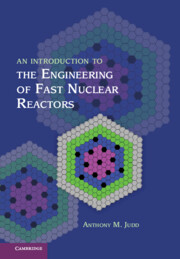2 - Fuel
Published online by Cambridge University Press: 05 February 2014
Summary
Introduction
In common with pressurised water reactors (PWRs), boiling water reactors (BWRs) and advanced gas-cooled reactors (AGRs) most fast power reactors use oxide fuel. There is a certain amount of experience with metal fuel in the United States, and there is interest in the use of metal fuel and other ceramic fuels such as nitride or carbide for future fast reactors. This chapter deals mainly with the oxide and metal fuels of which there is most experience, and it covers other fuel materials in less detail.
Since oxide fuels are widely used much of this chapter applies as well to thermal reactors as to fast reactors. The main difference is that new fast reactor fuel usually consists of a mixture of plutonium and uranium dioxides whereas at present most thermal reactors use enriched uranium dioxide with a small amount of plutonium present after irradiation. The use of mixed uranium and plutonium dioxide (MOX) fuel in thermal reactors is increasing. Most water-cooled thermal reactors have fuel clad in zirconium alloy, but AGRs use stainless steel, and because of the similarity of the coolant temperatures there is much in common between the behaviour of AGR fuel and that of a sodium-cooled fast reactor.
Information
- Type
- Chapter
- Information
- An Introduction to the Engineering of Fast Nuclear Reactors , pp. 92 - 149Publisher: Cambridge University PressPrint publication year: 2014
